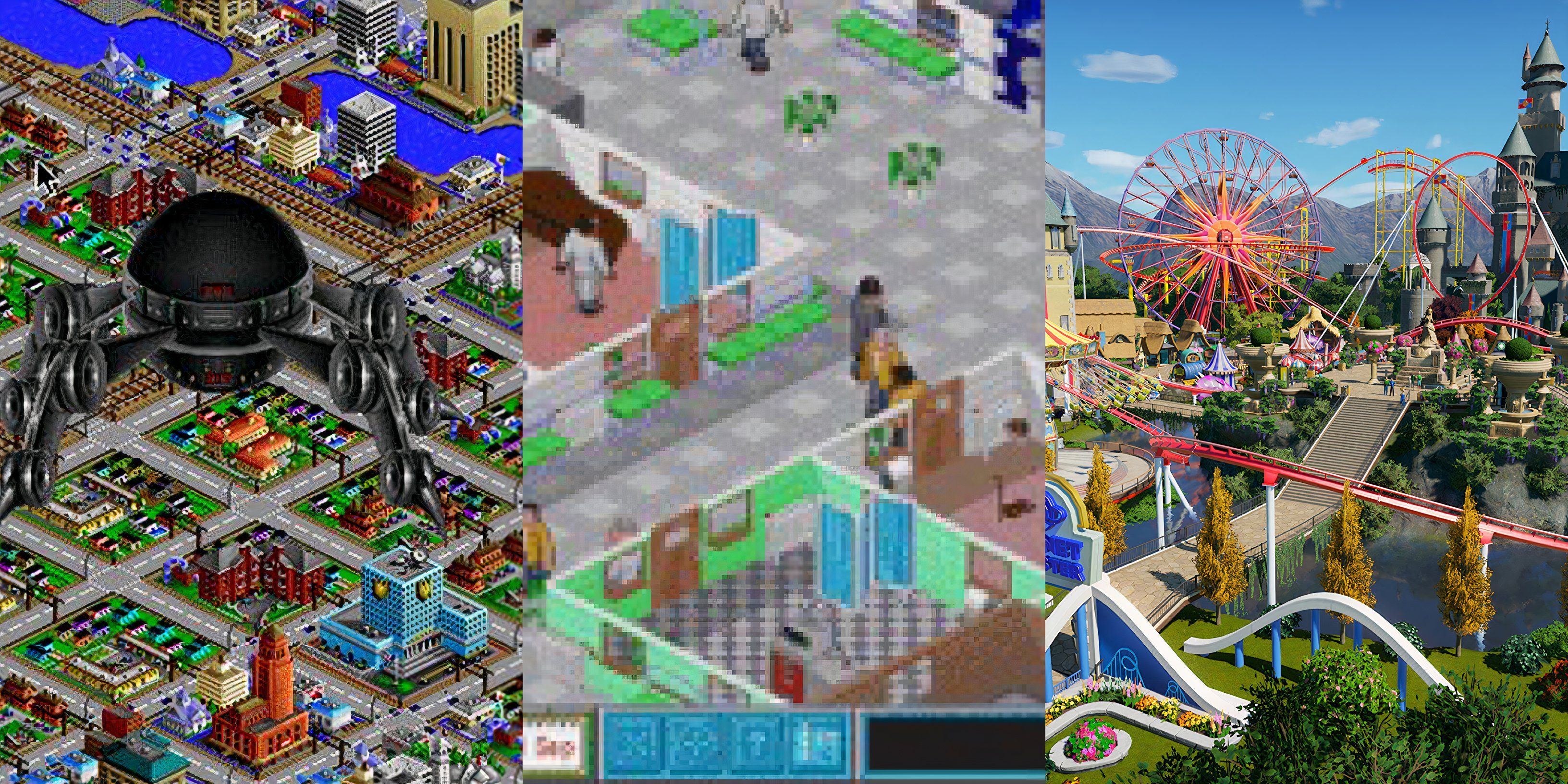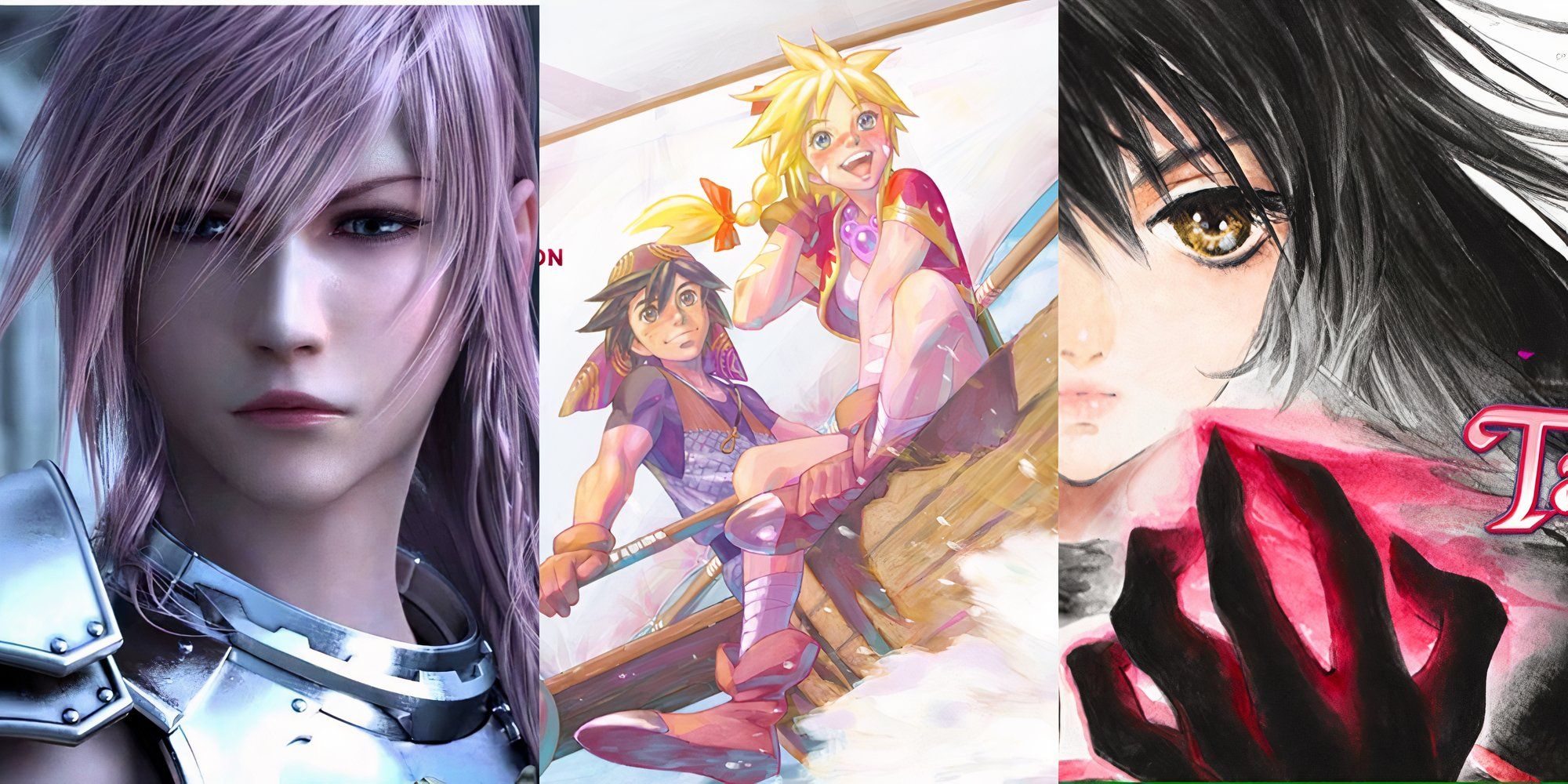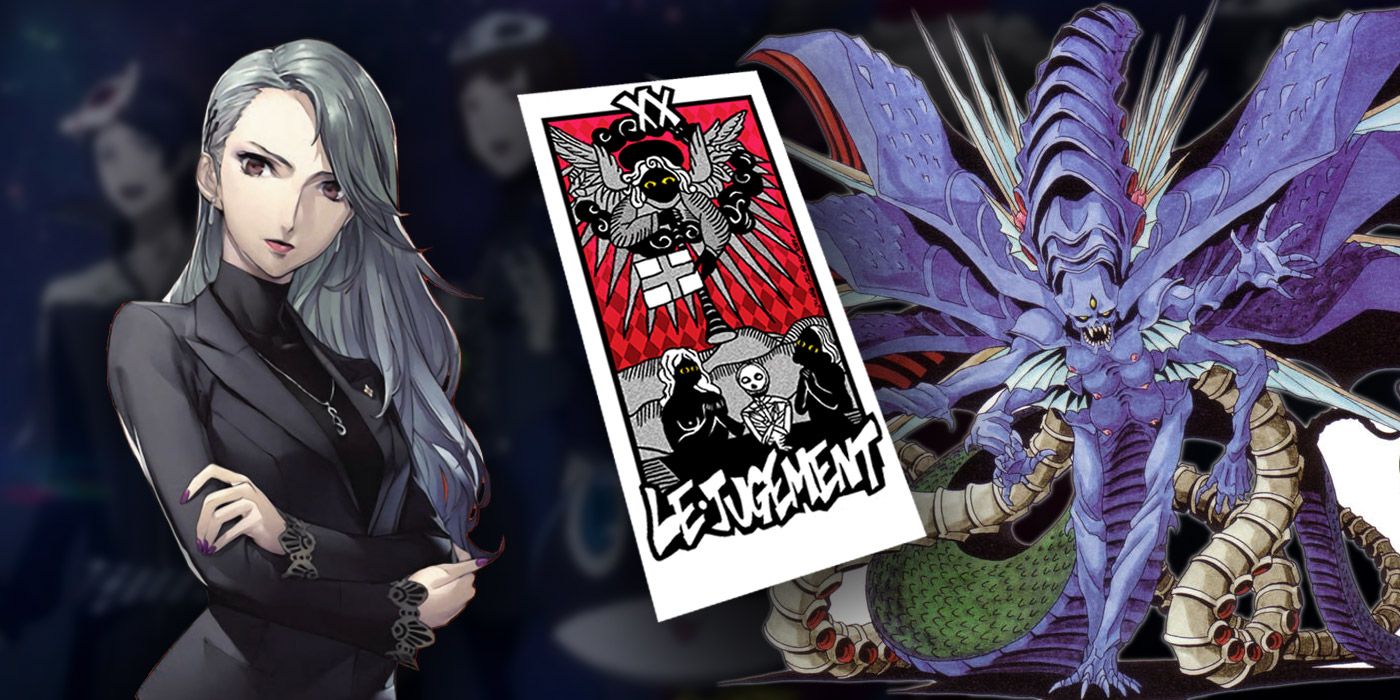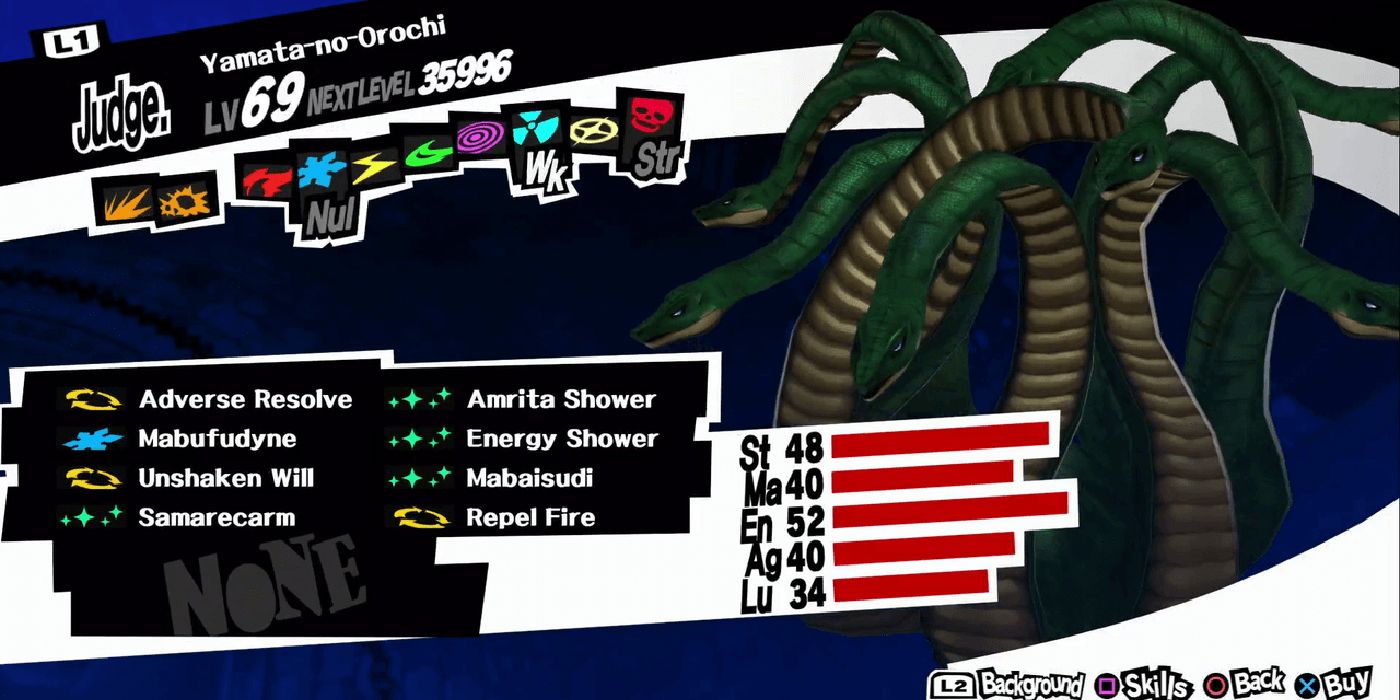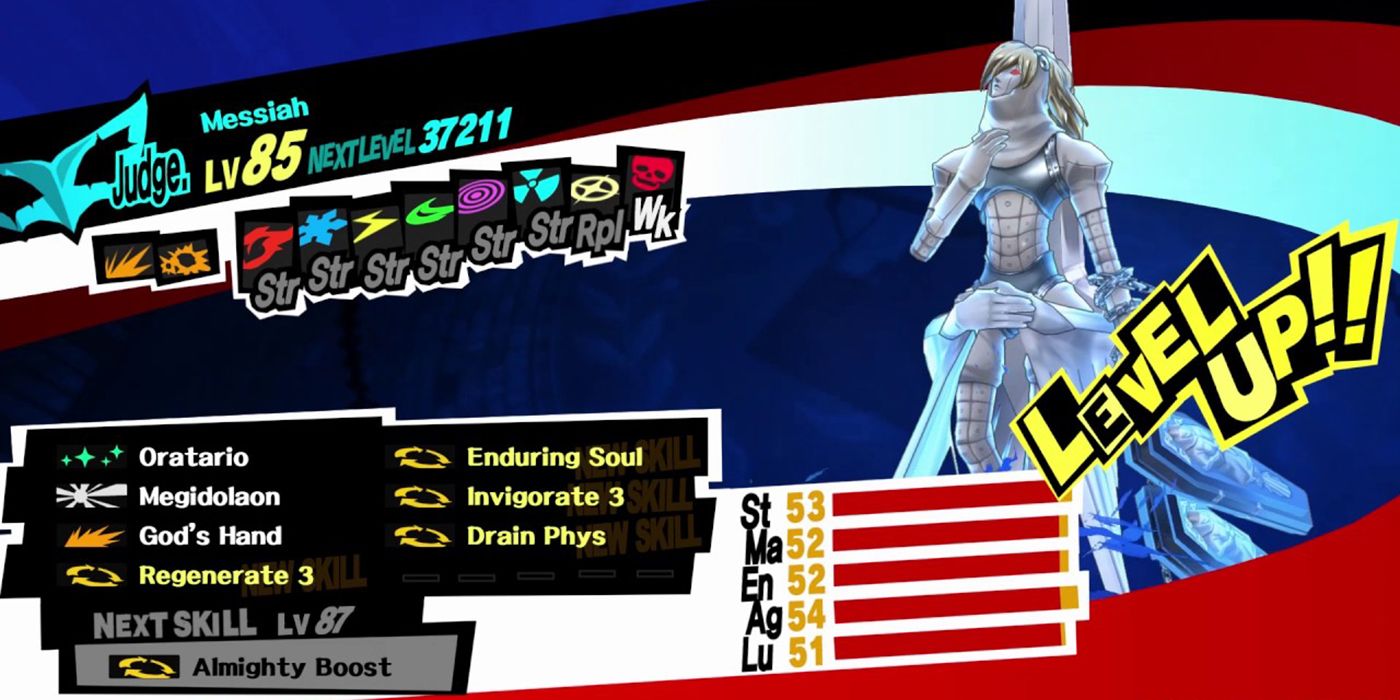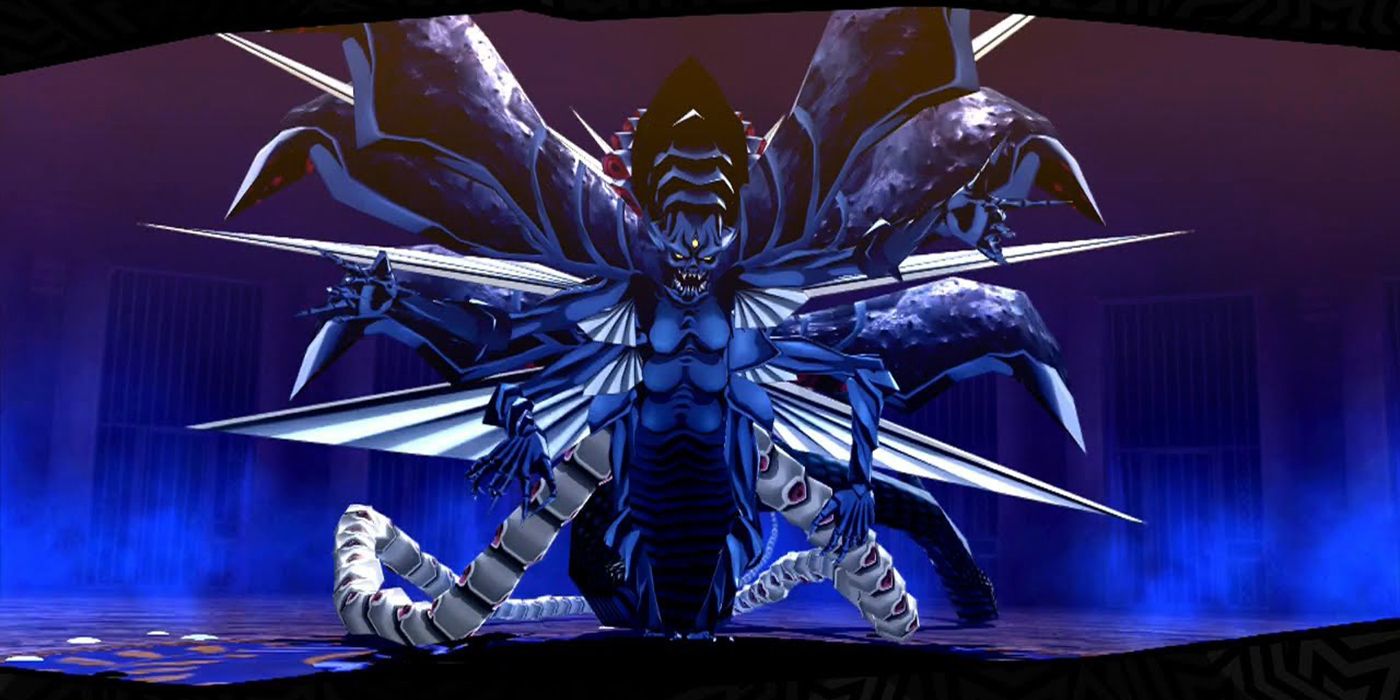The Judgement major arcana (which exclusively uses the British spelling of the word, despite the tarot's French origins), is all about settling accounts. If the Fool arcana represents potential, and the World arcana represents totality, Judgement governs endings, and perhaps, new beginnings. Historically, the Persona franchise delegated this arcana to groups of people, but Persona 5 bucks the trend by assigning the card to a specific character: Sae Niijima.
Sae provides Persona 5 with it's frame narrative, interrogating Joker about his time in Tokyo and his involvement with the Phantom Thieves. She also becomes a target of the Phantom Thieves herself, as her desire for justice, answers, and recognition gradually distort her cognition. Like the Judgement arcana, Sae plays a pivotal role in sealing Joker's fate, assessing his actions.
It is interesting to note that baseless criticism is a hallmark of a reversed Judgement tarot card, as Sae viciously lashes out at her younger sister as she grows frustrated with her investigation's lack of progress. Sae's sister, Makoto, represents the Priestess major arcana, in addition to acting as the Phantom Thieves' chief strategist, after Joker. There is an interesting duality between the Niijima sisters, in that both are motivated to discover the truth behind the Phantom Thieves—and both are unfairly coerced to provide results, but their methods differ greatly. While Makoto joins their righteous cause, becoming a vigilante in the process, Sae does everything she can within the constraints of the law.
Yamata no Orochi - Eight-headed Serpent
Each Persona in Persona 5's Judgement arcana is concerned with some kind of ending. Sometimes, that entails death. Others, it entails making amends. In Yamata No Orochi's case, it is both of the above, and a wedding as well.
After the god of storms, Susanoo, is expelled from the heavenly realm by his sister, Amaterasu, he encounters a couple grieving by a river. They tell Susanoo that a terrible monster, Yamata no Orochi, has demanded and devoured seven of their eight children in sacrifice, and soon, their eighth daughter must be sacrificed as well. Susanoo meets the daughter, and asks for her hand in marriage in exchange for saving her life and killing the monster. The grief-stricken couple, not really in the best position to negotiate, concede. After the two are wedded, Susanoo promptly transforms their daughter, Kushinada-Hime, (whom Persona 5 represents in the Lovers arcana,) into a hair comb and takes her with him.
But Susanoo also makes good on his promise, snicker-snacking all of Yamata no Orochi's heads from its body, which somehow possessed both eight heads, and eight tails. To perform this deed, Susanoo used the legendary blade, Totsuka no Tsurugi. And the slain Orochi dropped truly epic loot, as truly epic monsters do. Susanoo found a superior weapon: Kusanagi Tsurugi. Arguably the most famous sword in Japanese mythology, Susanoo gives the blade to his sister, Amaterasu to make amends for his transgressions. The blade later became one of three sacred treasures held by the Emperor of Japan as imperial regalia.
Messiah - Savior of Mankind
In the west, the word 'Messiah' is inextricably tied to Jesus Christ, though the term is actually much older, literally translating to 'anointed one' and carries a broader connotation of 'liberator' or savior of a group of people. The word took on a new meaning following the crucifixion, however, and is now employed to specifically refer to the savior of all humanity.
The concept of a Messiah isn't exclusive to Abrahamic religions, and it has also been applied to other figures who have brought tremendous, world-altering spiritual change or enlightenment, including Buddha and Krishna. Needless to say, there is an extremely rich tradition of power for this persona to draw on, though Atlus' design of Messiah (and Messiah Picaro) strikes a balance between awesome-looking, and theological vagueness. Given the multifaceted and incredibly important traditions this persona has to draw on, it is incredibly powerful, which is one of the few commonalities of all Judgement personas.
As for endings, the reason Messiah falls in Judgement's category is that Messiah's are not merely associated with liberating or saving the world, but saving people from a specific, world ending threat. While Messiah's can show up early in a religion's story, like Jesus, their final actions usually entail deliverance, justice, and judgement that will occur at the end of the world.
In the Persona series, Messiah originally belonged to a Wild Card user from another game—in this case, Persona 3, where it awakens from the fusion of the protagonist's personas, Orpheus and Thanatos; both figures from Greek folklore, governing poetry and death respectively. An interesting recipe for the supposed savior of all mankind.
Satan - The First to Fall
It will surprise no one to learnt that Atlus loves its devils—especially where Persona is concerned. Though, given the appearance of Lucifer in the Star arcana, and Joker's ultimate persona from the Fool arcana, Satanael, things can get confusing quickly. In short, all three entities overlap in certain areas and diverge in others, as is the way with folklore. Both Satanael and Lucifer are invoked as angelic names of Satan, the angel who rebels against the God of the Abrahamic religions to become the devil. Michael (also represented in Persona 5 by the Judgement arcana) strips Satan of his 'iel/ael/el/' suffix when he casts Satan into hell.
According to the Cathars, a dualistic medieval sect of Catholicism, Satanael and God, named in gnostic texts as 'Yaldabaoth,' (same as Persona 5's final boss) were two sides of the same coin. Satanael was the creator of the material world, and the God of the old testament, whereas the God of the New Testament was a good god of justice and mercy. This religious belief, endemic to Southern France and Northern Italy in the 12th century, prompted the Albigensian Crusade which resulted in its eradication—if organized Catharism ever existed. Some historians believe that the Cathars were a threat that the Catholic church invented to expand its authority and consolidate power.
Persona 5 and Persona 5 Royal are available now for the PlayStation 4.


